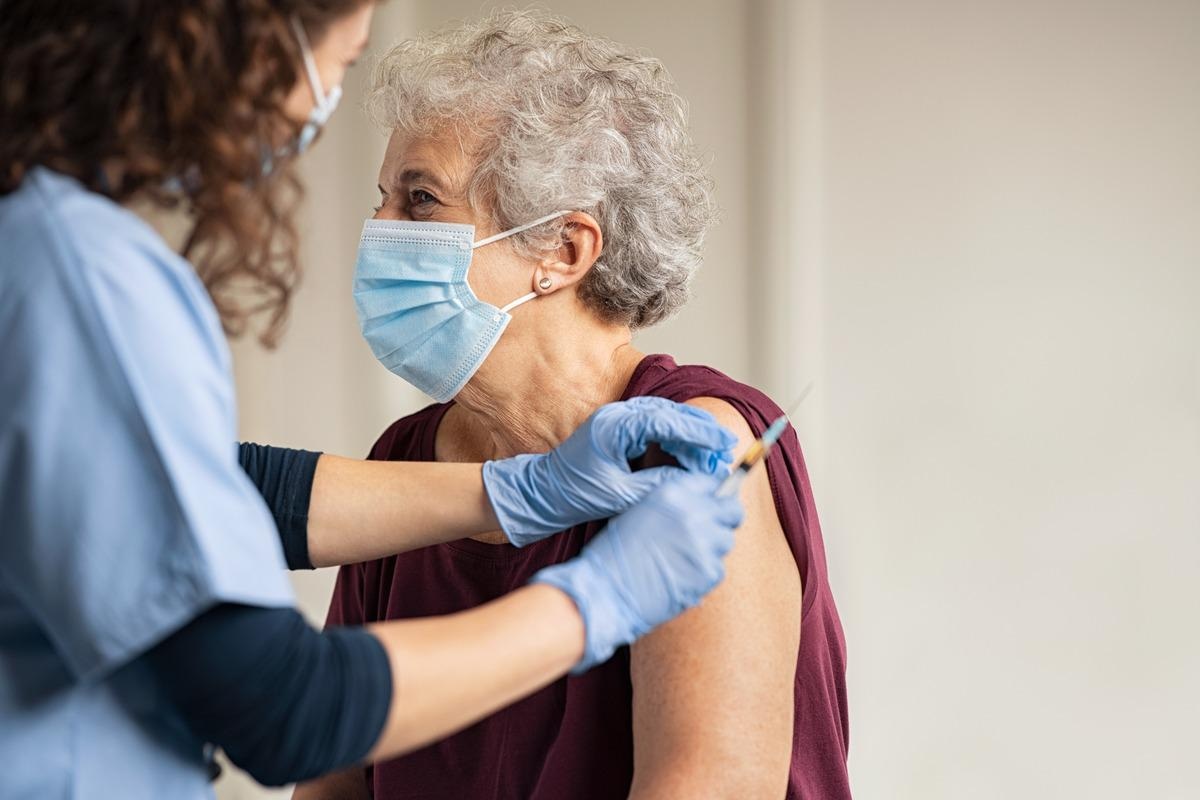Booster shots generated a high immune response among healthcare workers 60 years or older and people with two or more comorbidities. Compared to the first two Pfizer-BioNTech doses, the booster shot had an 85.6% vaccine effectiveness.
 Study: Superior immunogenicity and effectiveness of the 3rd BNT162b2 vaccine dose. Image Credit: Rido/Shutterstock
Study: Superior immunogenicity and effectiveness of the 3rd BNT162b2 vaccine dose. Image Credit: Rido/Shutterstock
The researchers conclude that a third Pfizer-BioNTech dose is immunologically “superior” to the second dose. Booster shots have shown considerable effectiveness against the newly identified Omicron variant which has caused a record number of breakthrough infections in vaccinated individuals. Additionally, the booster shot may be essential in providing protection against people who are older or immunocompromised who may not have had a full antibody response with the first two doses.

 This news article was a review of a preliminary scientific report that had not undergone peer-review at the time of publication. Since its initial publication, the scientific report has now been peer reviewed and accepted for publication in a Scientific Journal. Links to the preliminary and peer-reviewed reports are available in the Sources section at the bottom of this article. View Sources
This news article was a review of a preliminary scientific report that had not undergone peer-review at the time of publication. Since its initial publication, the scientific report has now been peer reviewed and accepted for publication in a Scientific Journal. Links to the preliminary and peer-reviewed reports are available in the Sources section at the bottom of this article. View Sources
How they did it
The researchers studied vaccine effectiveness, vaccine safety, and immune response of 12,413 healthcare workers living in Israel who were given a third dose of the Pfizer-BioNTech vaccine.
Serum samples were collected from vaccinated healthcare workers after the second, before the third dose, and after the third dose to study changes in antibody levels. Vaccine effectiveness was studied between healthcare workers with three doses to healthcare workers who received two vaccines at least 5 months ago.
Heathcare workers inoculated with a booster shot by September 2, 2021 were invited to fill out an electronic questionnaire involving adverse events after vaccination.
Third Pfizer-BioNTech shot boosts immune levels against SARS-CoV-2
The third vaccine dose produced a 31-fold increase in IgG antibody levels compared to two doses. Additionally, there was a 41-fold increase in neutralizing antibodies after the third dose.
The researchers also found a small, but significant increase in T cell activation in 16 healthcare workers. The average IgG titer was greater after the third (2,745) than the second dose (1,586). In other words, a 1.7-fold increase was observed in IgG levels after the third booster shot. With the third dose, neutralizing antibodies rose from 646 to 3,948. This translated to a 6.1-fold increase from the second dose.
The researchers also tested antibody binding strength to a complex antigen after the second and third doses. The second dose produced a 61.1% antibody binding strength while the third dose produced a 96.3% binding strength. Age did not make a difference in binding strength between doses.
Individual factors associated with dosage strength
Old age was linked to lower IgG levels and neutralizing titers after the second dose. Being male and having one or two preexisting health conditions was also associated with lower levels.
Higher IgG tiers are correlated with obesity — a BMI of 30 or higher — than those that are not. In healthcare workers 60 years or older with two or more comorbidities, the third dose increased IgG antibody levels by 1.41-fold. Additionally, neutralizing titers in this age group increased by 1.66-fold compared to younger healthcare workers and those with no preexisting health conditions.
The gap in differences in IgG levels between older and younger adults, gender, and between those with and without preexisting health conditions was reduced after receiving a third dose. The increased binding strength from the third booster shot was correlated with the observed increases in IgG levels and neutralizing antibodies.
Vaccine effectiveness after booster
The rate of breakthrough infections two doses was 5.8 per every 10,0000 days. Healthcare workers inoculated with three shots had a lower risk of breakthrough infections at a rate of 1.1 per every 10,000 days.
The vaccine effectiveness for the booster was calculated at 85.6%.
Side effects from COVID-19 booster
About 3,611 healthcare workers completed an electronic questionnaire asking about any local or systemic adverse events after the booster. Almost all young females younger than 60 and two-thirds of older males reported local reactions, mainly pain at the injection site. About 76% of young females reported systemic adverse events, including fatigue and muscle pain. Nineteen percent also reported fever. In contrast, 31% of older males reported systemic reactions and 3% reported fever.
Two healthcare workers developed symptoms after their booster and required hospitalization.

 This news article was a review of a preliminary scientific report that had not undergone peer-review at the time of publication. Since its initial publication, the scientific report has now been peer reviewed and accepted for publication in a Scientific Journal. Links to the preliminary and peer-reviewed reports are available in the Sources section at the bottom of this article. View Sources
This news article was a review of a preliminary scientific report that had not undergone peer-review at the time of publication. Since its initial publication, the scientific report has now been peer reviewed and accepted for publication in a Scientific Journal. Links to the preliminary and peer-reviewed reports are available in the Sources section at the bottom of this article. View Sources